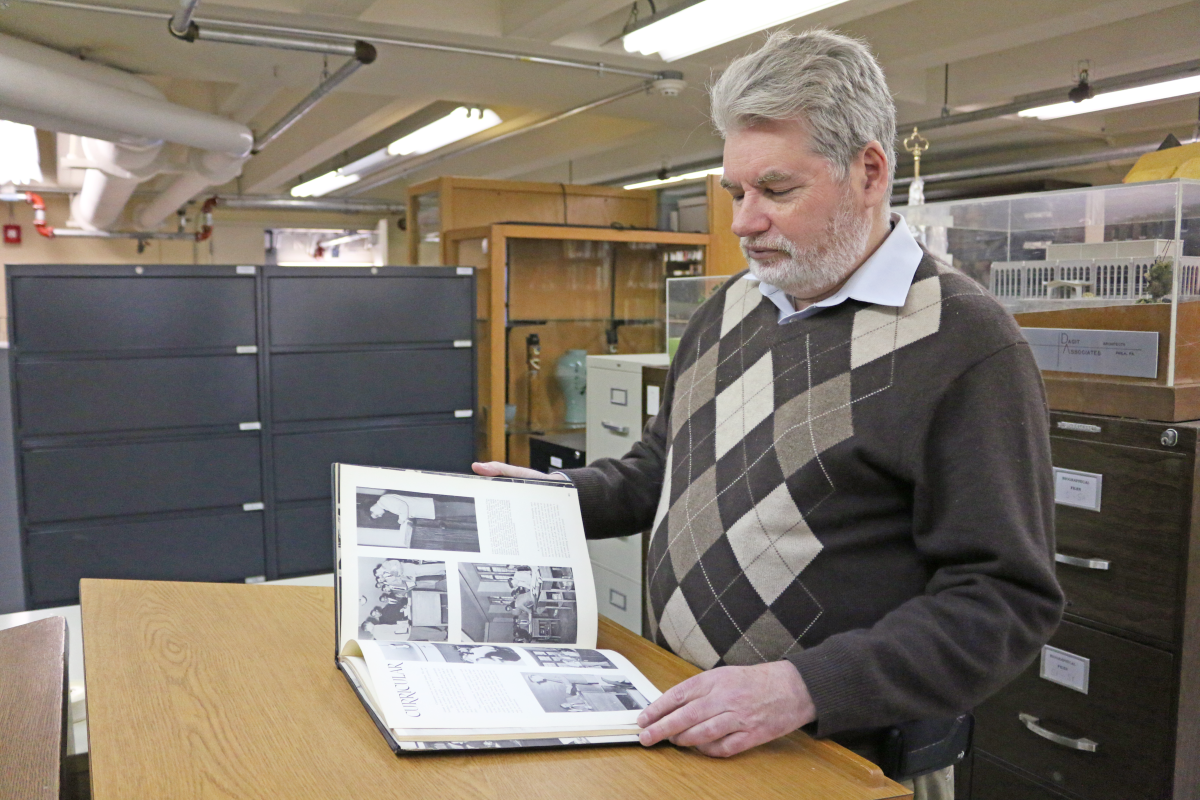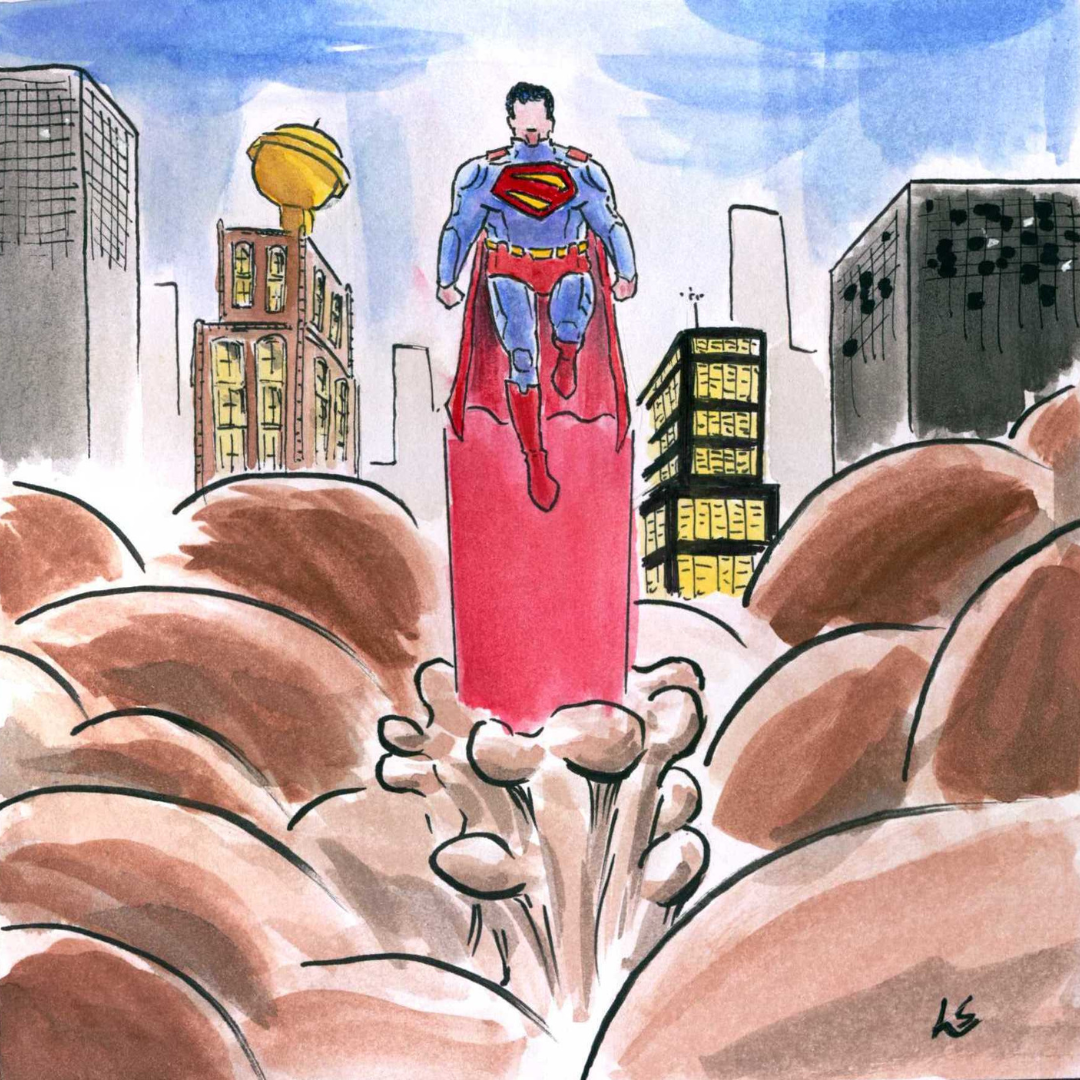Campus yearbook production ceased after 2016 publication.
When St. Joe’s seniors collect their diplomas at commencement this year, they will not be picking up yearbooks.
Last year was the first year St. Joe’s ended production of its yearbook The Greatonian, which had been published in print since 1928.
Beth Hagovsky, Ed.D., director of Student Leadership and Activities, the last adviser for the yearbook, said multiple factors influenced the decision to stop publication.
“We had at different times reached out to the [communication studies] department, but there was not a faculty member available,” Hagovsky said. “We were not doing this well anyway because we weren’t tapping into kids who had skills. We never found the support on the academic side in the way that we needed it.”
In 2012 the university stopped publishing a print yearbook and instead offered a digital yearbook. Then in 2014, students were offered access to a digital yearbook with the option to purchase a physical copy. The print yearbook cost $65 and the digital book was free.
Hagovsky said students were disappointed with both the digital and the print product. Many parents and students called to complain about the high price and low quality of the yearbook, which was published by Lifetouch Yearbooks.
The 2016 edition of the book featured photographs only. There were no captions nor any way for readers to identify what was happening in the photo, who was in it, or when the photo was taken. Newer versions of the yearbook also did not feature the title The Greatonian on the cover or spine.
Another factor in the decision to discontinue the book was the low number of students opting to get their portraits taken. Hagovsky said that only about one-third of the senior class was getting their photos taken.
Amanda Hagen ’18 said she would buy a yearbook if the price was right and the quality was good.
“Digital yearbooks would be nice,” Hagen said. “I’m sure a lot of people taking photography and interested in graphic design would love to [help produce the yearbook].”
Catie Buttner ’09 was part of the yearbook staff a few years ago. She worked with Student Leadership and Activities to produce a yearbook structured similarly to prior years.
“It always included the senior students photographs, which were provided from the photographer if the [senior] students decided to take them,” Buttner said. “Then from there, we stuck with sections that represented student life. Things like Greek life, on campus events, a note from the president, service life, sports, etc.”
Villanova University, Drexel University and Temple University all still produce yearbooks, although it is not uncommon for colleges and universities to ditch their yearbooks.
“The business was dying,” Hagovsky said.
But for university archivists like Christopher O. Dixon, archival research librarian at Francis A. Drexel Library, yearbooks are of great importance to the university archives.
“Historically, yearbooks were a great thing to go and learn something about someone that went to school here or about events that took place,” Dixon said. “Greatonian 1929, gives a story about the senior ball. That may or may not be the only place you can find out things about the senior ball. We do have the archives, but they are rather limited by what people actually cared about or thought of.”
Dixon said past issues of The Greatonian, which are housed in the university archives, demonstrates the value that the yearbook once had.
“The yearbooks used to have a great deal and sense of pride. It was very prestigious much like the school newspaper still is today,” Dixon said.
Dixon added that by 2016, the decline in the quality of the yearbook that St. Joe’s was producing was noticeable.
“It is fun to see a photograph of different things, but if you don’t identify anything there is no context,” Dixon said. “I can look at this and tell you what it is, but my successors down the road in the next 30 years may not know what it is.”
Hagovsky does not see the yearbook coming back into print in the future.
“If there’s no student push I think we’ve reached a point, and SJU isn’t alone in this, that printed yearbooks are no longer something college graduates expect to get or even want,” Hagovsky said.














































